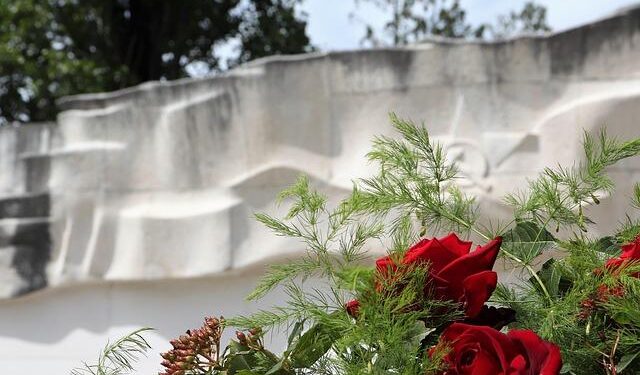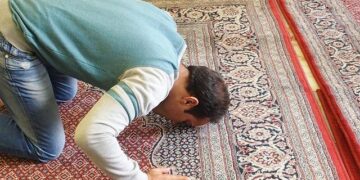Title: Rising Tensions: Grey Wolves Clash with Leftist Students at Ankara University
In a troubling escalation of campus violence, members of the Grey Wolves, a far-right nationalist organization, reportedly launched a coordinated attack on leftist student groups at a university in Ankara, Turkey. The shocking incident unfolded amid growing tensions within the country, where political factions increasingly clash over ideological differences. Eyewitness accounts describe scenes of chaos as students rallied for social justice, only to be met with the aggressive presence of the Grey Wolves, known for their militant tactics and radical nationalist rhetoric. This violent confrontation raises urgent questions about the state of free speech on campus and the broader implications of rising far-right sentiment in Turkey’s socio-political landscape. As authorities scramble to respond, the incident further highlights the divide between leftist and nationalist ideologies in a nation grappling with its identity in a rapidly changing world.
Tensions Escalate as Fascist Groups Target Leftist Student Movements in Ankara
The atmosphere at the university has become increasingly hostile as reports emerge of coordinated attacks by extremist groups against leftist student organizations. Witnesses indicate that members of the Grey Wolves, a far-right nationalist group, have been actively targeting students who advocate for progressive policies. Incidents have included physical assaults, intimidation, and the disruption of peaceful demonstrations. This escalation of violence represents a worrying trend in the ongoing conflict between right-wing factions and student movements seeking social justice and equality.
In response to these attacks, leftist student groups have called for solidarity and a united front against fascism. They emphasize the importance of standing together in the face of oppression and repression. Several key points emerged from recent discussions among activists:
- Increased Vigilance: Students are urged to remain aware of their surroundings and report any suspicious activities.
- Organized Resistance: Plans for peaceful demonstrations are being organized to counteract the violence.
- Community Support: Calls for support from local and international organizations are being reinforced to amplify their message.
University Response Under Scrutiny Amid Growing Concerns for Student Safety
As incidents of violence escalate on university campuses, concerns regarding student safety have reached a critical point. The recent attack by members of the Grey Wolves, a nationalistic group known for its aggressive tactics, has sparked outrage among students and faculty alike in Ankara. Witnesses report that the assailants targeted leftist students, shouting slogans that incited fear and chaos. This alarming event has raised pressing questions about the university’s commitment to safeguarding the rights and safety of all students.
In response, the university administration has issued a statement asserting their dedication to creating a secure environment. However, many students remain skeptical, citing a perceived lack of adequate protective measures and preventive strategies. Numerous campus organizations have called for action, highlighting the need for stronger policies to address such violent encounters. Among their demands are:
- Increased security presence during campus events.
- Implementation of mandatory workshops on conflict resolution.
- Formation of a task force to investigate hate crimes on campus.
While the administration claims to prioritize safety, the community is urging for more transparency and proactive measures to prevent the recurrence of such violent incidents. As discussions continue, students are left grappling with a sense of insecurity, fearing that the university may not adequately respond to their needs amid escalating tensions.
Recommendations for Enhanced Security Measures and Support for Affected Students
In light of the recent violent incident involving the Grey Wolves at the university in Ankara, it is imperative for educational institutions to take proactive measures to ensure the safety of all students. Enhanced security protocols should be put in place, including the presence of trained security personnel during campus events and a clear reporting mechanism for incidents of violence or harassment. Furthermore, institutions need to foster a culture of inclusivity and respect, promoting campus-wide dialogues to address extremist ideologies and their consequences. Key recommendations include:
- Increased Surveillance: Installation of CCTV cameras in critical areas around campus.
- Emergency Response Training: Regular drills and training for staff and students on how to respond to violent incidents.
- Secure Spaces: Designated safe zones where students can gather without fear.
Support for affected students must extend beyond immediate security measures. Universities should prioritize mental health resources and counseling services to assist those traumatized by the attack. Creating support groups can facilitate healing and provide a platform for students to express their concerns. Additionally, institutions should consider establishing partnerships with local mental health organizations to ensure professional support is readily available. A potential framework for student support could include:
| Support Service | Description |
|---|---|
| Counseling Services | Access to trained counselors for one-on-one sessions. |
| Support Groups | Regular meetings for students to share experiences and coping strategies. |
| Workshops | Sessions focused on resilience, self-care, and peer support. |
Final Thoughts
In summary, the violent confrontation at the Ankara university serves as a stark reminder of the escalating tensions surrounding political ideologies in Turkey. The attack by Grey Wolves, a nationalist group known for its extremist views, on leftist students is indicative of a broader pattern of intolerance and political repression that threatens academic freedom and civil discourse. As investigations unfold, the actions of the Grey Wolves will undoubtedly reignite discussions on the need for a unified front against fascism and the protection of democratic principles in educational spaces. The incident underscores the urgency for solidarity among progressive factions, as well as the necessity for government and institutional accountability in safeguarding the rights of all students, regardless of their political affiliations. As Turkey navigates this turbulent landscape, the international community watches closely, hoping for a commitment to democratic values and the protection of human rights.






![[Award Alert] Turkish Business Class to Istanbul From 65K Miles – Upgraded Points](https://capital-cities.info/wp-content/uploads/2026/01/210005-award-alert-turkish-business-class-to-istanbul-from-65k-miles-upgraded-points-360x180.jpg)







